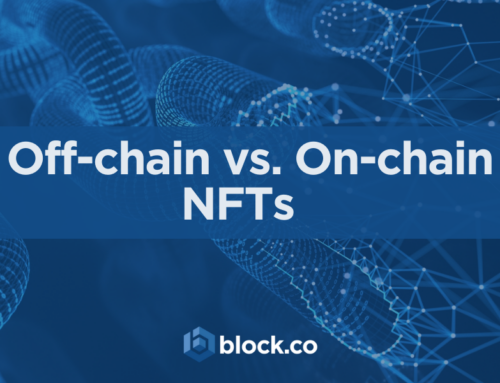Legal Implications of NFTs (Non-Fungible Tokens)

NFTs have received a lot of attention this year, but despite their huge popularity, it is still unclear how copyright law protections are addressed while one creates, sells, or owns an NFT item. In this article, we aim to educate our audience about the legal aspects of NFTs. When an artist creates a work of art, painting, music or any other digital object, copyright remains with the artist, unless the commercialization of NFT refers to the transfer of the property right of the author to the purchaser of NFT, it is certain that the personal right of the author stays in the legal sphere of the creator.
NFTs are digital certificates that provide ownership of an asset represented by a Non-Fungible Token that can be verified by a blockchain entry. The person who produces the NFT becomes the owner of the original file and, as a result, he or she sets the permission to use this NFT. Even if somebody has access to an object linked to the NFT, they will only have a programmed certifiable clone of it. Purchasing an NFT, does not make the purchaser the owner of the original work, meaning that in the case of reselling the work, the original author will be displayed on the artwork.
Now, paintings and videos can be sold in the form of NFTs. Let us for instance consider the most expensive token so far – the Beeple painting which was sold for $ 69 million. The artist remains the author and copyright holder since he created the painting. The person who bought the token at Christie’s does not own the exclusive rights to the painting. The platform that created the painting token (in this case, MakersPlace) has a limited license. That is, there is no agreement between the buyer and the creator of the original art object. Exclusive rights remain with the author. Whether a customer can, let us say, print mugs with a Beeple painting remains unclear. If the purchasers want to sell the NFTs by usurping the creation of the work, the author can file a lawsuit against them. So far, the issue of rights is regulated only by the specific platform on which the NFT was released.
In the current implementation, NFT for art can be compared to a souvenir postcard that depicts a painting. The purchase of such a postcard may be of collectible interest for someone, but the transfer of rights to art as an object of intellectual property does not occur. The same happens with an NFT. The law does not in any way connect the sale of an NFT with the transfer of rights to art as an object of intellectual property. For this theoretically to at least become possible, the rules of the system in which NFTs are sold must provide for the transfer of exclusive rights to the buyer of the token – and the copyright holder of the work of art must accept them. For example, to use a crypto punk as a Twitter avatar, you will need to prove that you are the owner of this NFT, or to exhibit some digital collectible on Instagram, you need to be prepared to prove to algorithms that you own the token. In both cases, the metadata for this may indicate the appropriate permitted use.
OpenSea marketplace has removed Sad Frogs District tokens from the site due to the copyright infringement and appeal of the author of the Internet meme “Pepe the Frog” Matt Fury. The project teams reported on Twitter that they sent a counter-request to OpenSea representatives demanding the return of Sad Frogs District tokens to the site.
NFT PROJECTS AND CONSUMER PROTECTION
As a result of the above, the problem of consumer protection arises. There are practically no rules for NFT buyers and sellers right now. The former may not fully understand what exactly they are buying, says Donna Redel, a member of the board of directors of the New York Angels and an associate professor at Fordham Law. In addition, according to the professor, the platforms for creating NFTs do not know their clients and artists well, so they can be used for money laundering. At Block.co we certainly know and verify the identity of issuers, while the NFTs are minted for marketing and branding purposes, rather than to be sold on marketplaces.
NFT TOKENS AND SECURITIES LAW
Lawyers at the New York-based firm Tarter Krinsky & Drogin believe that non-fungible tokens could collide with securities law (although this seems unlikely), because blockchain cannot guarantee that a creative piece is genuine. Someone can tokenize another person’s work as an NFT, therefore infringing on the copyright owner’s rights. One must be certain to purchase something that was created by the copyright owner. Block.co ensures that content creators are verified and that they are the copyright owners of collection NFTs before allowing the minting.
If there is no legal agreement between the creator and the buyer of the NFT, the exclusive rights do not pass to the buyer with the purchase of the token. Other rules may be established in the platform rules, but today the standard terms of the largest platforms do not contain such rules. It is likely that the platforms will give the creators of NFTs the right to choose the license terms themselves in future versions of the product. For example, license terms can also be written in the metadata itself, rather than in uniform rules for everyone. This will give creators more flexibility.
If your brand is ready to take the step into web 3.0 and NFT marketing, to optimize engagement with your audience in innovative ways, then click the button below to get your Free Trial, a limited number of Free NFTs, and a Free Consultation call from our team!
Block.co is about to launch an NFT platform for marketers. To get more information about Block.co’s services, please contact Block.co directly or email at enquiries@block.co.
Tel +357 70007828
We regularly post educational materials on our social media, follow us to stay up to date about the latest blockchain and NFT news.







